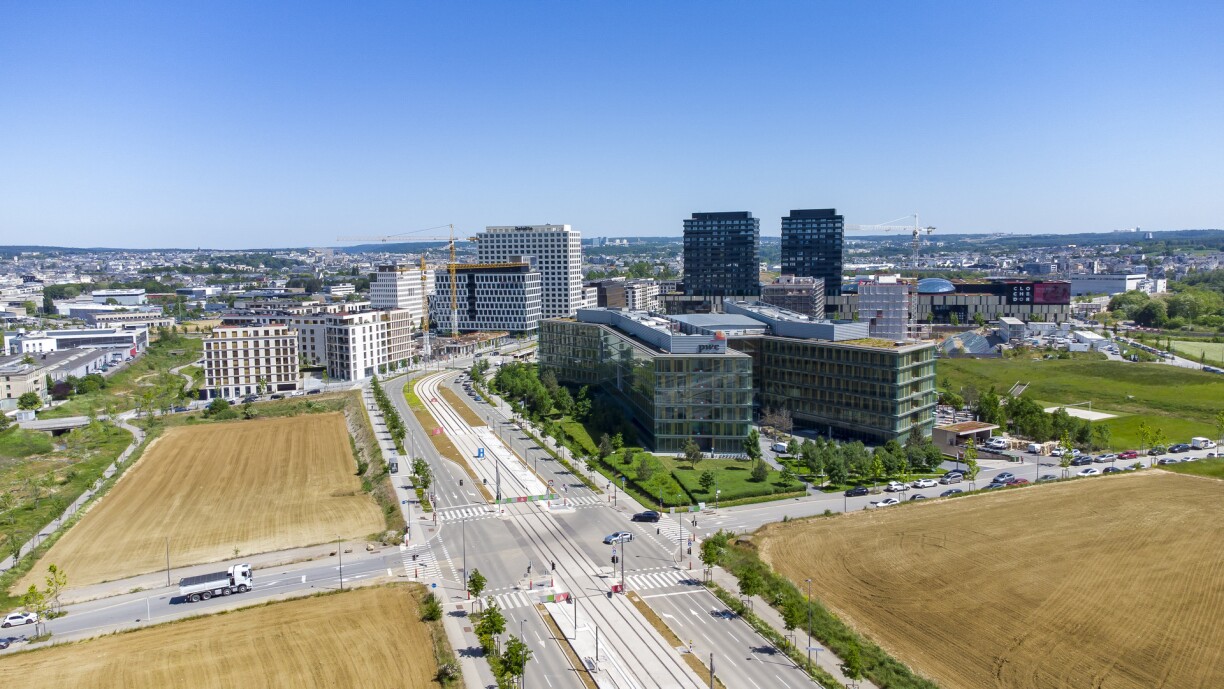
One of the foremost concerns is the rapid population growth experienced by the capital over the past two decades. From 78,000 residents in 2003, the city’s population has reached 133,000 in 2023, with no signs of slowing down.
The major challenge for any new coalition formed after the elections is to effectively absorb this growing population (+4,000 inhabitants in one year), which consists of a highly cosmopolitan mix of 180 nationalities, while simultaneously addressing the housing crisis.
Creating suitable living, travel, and work conditions is crucial, considering that one-third of the country’s jobs are located in the capital. However, a backdrop of soaring housing prices presents a significant hurdle. Currently, the average selling price of a newly constructed flat in the capital stands at €14,000 per square meter, compared to an average of €9,347 per square meter elsewhere in the country - even if house prices are currently falling.
Consequently, affordable housing has become a central theme in most election programmes, with promises ranging from substantial investments to significant increases in the number of municipal housing units.
For instance, the Luxembourg Socialist Workers’ Party (LSAP) has pledged to invest €100 million annually in affordable housing and aims to raise the number of municipal housing units from 620 to 2,000 by 2030. Similarly, the Democratic Party (DP) intends to invest “as much as possible” in rental housing, allocating the same amount of €100 million per year for construction.
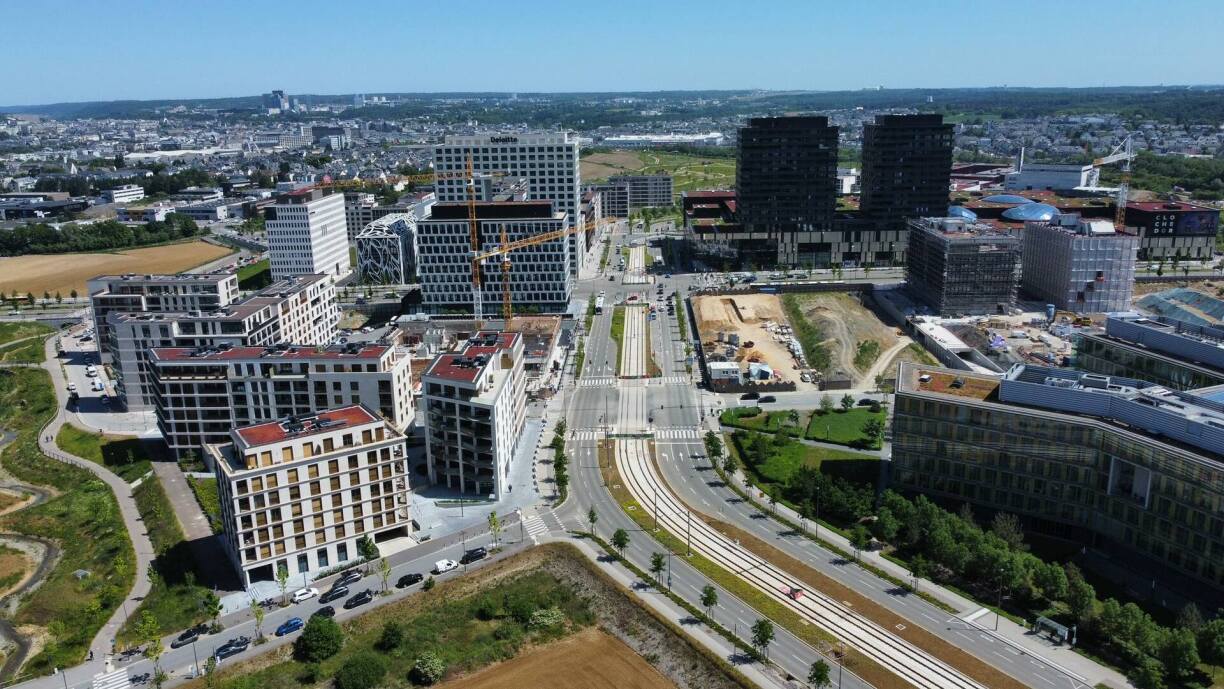
The Green Party (déi Gréng) does not specify a timeframe but has vowed to “double the supply of affordable rental housing.” Meanwhile, the CSV has pledged to develop sustainable neighbourhoods accommodating thousands of affordable housing units over the next ten to fifteen years. One of the solutions proposed by the CSV is to build “at an acceptable density with residences of four to five storeys” in the future, according to Serge Wilmes, member of the municipal executive board.
To facilitate these housing projects, the city possesses significant land and financial reserves, amounting to €1.13 billion by the end of 2022, and the current DP-CSV coalition, like the previous DP-Greens coalition, has laid the groundwork for urban development through various large-scale construction initiatives.
Examples include the “STADePARK” residential area, the former Faïencerie Villeroy et Boch site in Rollingergrund, Place de l’Étoile, and upcoming projects in Kirchberg, such as Laangfur and Kuebebierg. These projects are cited as examples by several parties in their programmes to show that progress is underway. The problem is that it will take longer than the new legislative period to see all these major projects come to fruition.
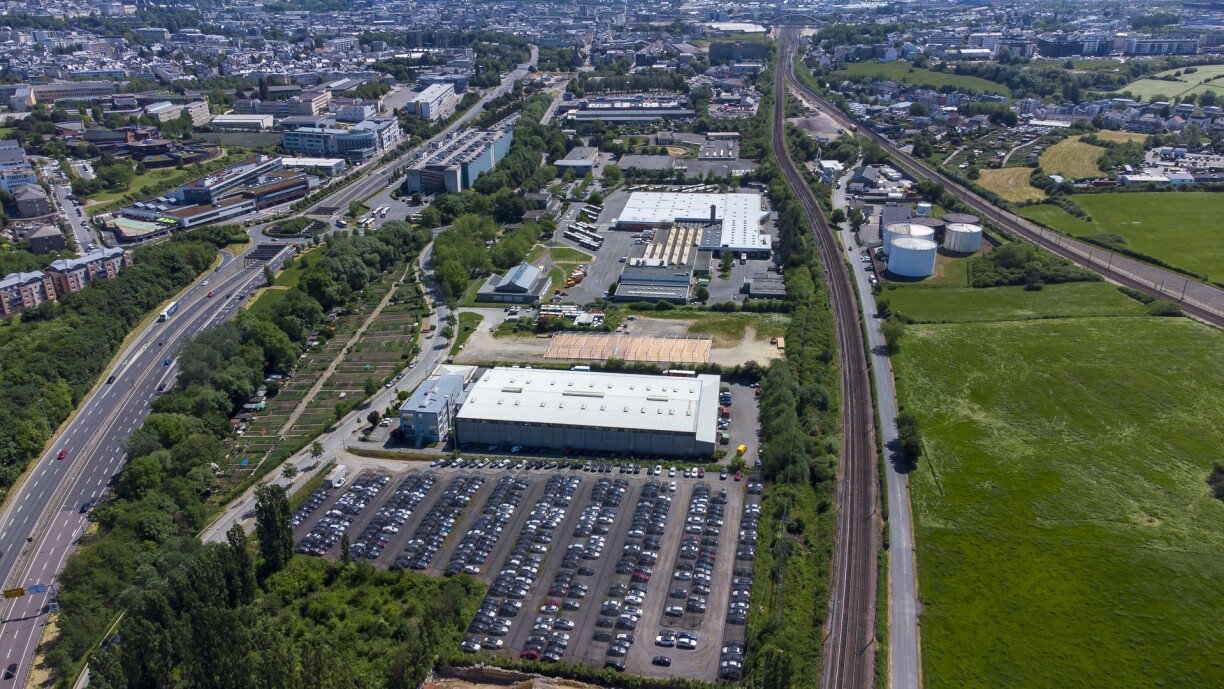
The ‘Portes de Hollerich’ residential eco-district in the south-west of the capital is often presented as a “neighbourhood of the future": More densely populated, very green, and well equipped with local services and shops. The city owns more than half of the land required. The future district will include 2,200 homes for over 6,000 residents. “We’ve reached the point where, in 2024, we’ll be able to introduce our first Special Development Plan (PAP)”, says Wilmes, who wants to “involve the private sector in the effort to build affordable housing.”
The various parties envisage lively, friendly neighbourhoods, with playgrounds and new swimming pools (preferably at Glacis for Fokus, Kirchberg for the LSAP, or Kockelscheuer for the DP). There is also an emphasis on environmental sustainability “compulsory for projects to include greenery and be permeable to water,” as suggested by the Green Party. In addition to housing, mobility is a dominant theme in the electoral campaign. Balancing various modes of transportation and reducing individual traffic, which currently accounts for 60% of traffic in the capital, is a priority for all parties. The DP, for instance, wants to increase the number of electric buses “by 2025,” and boost soft mobility. The party is committed to “a bicycle-friendly city” and to creating the often demanded “interconnection of cycle paths” that is still lacking.
The Green Party is seeking to systematically plan a network of cycle paths over two, five, and ten years, calling in experts to “make the capital a cycle-friendly city”. The LSAP, meanwhile, wants to “link the city’s 24 districts by a network of safe corridors for pedestrians and cyclists”.
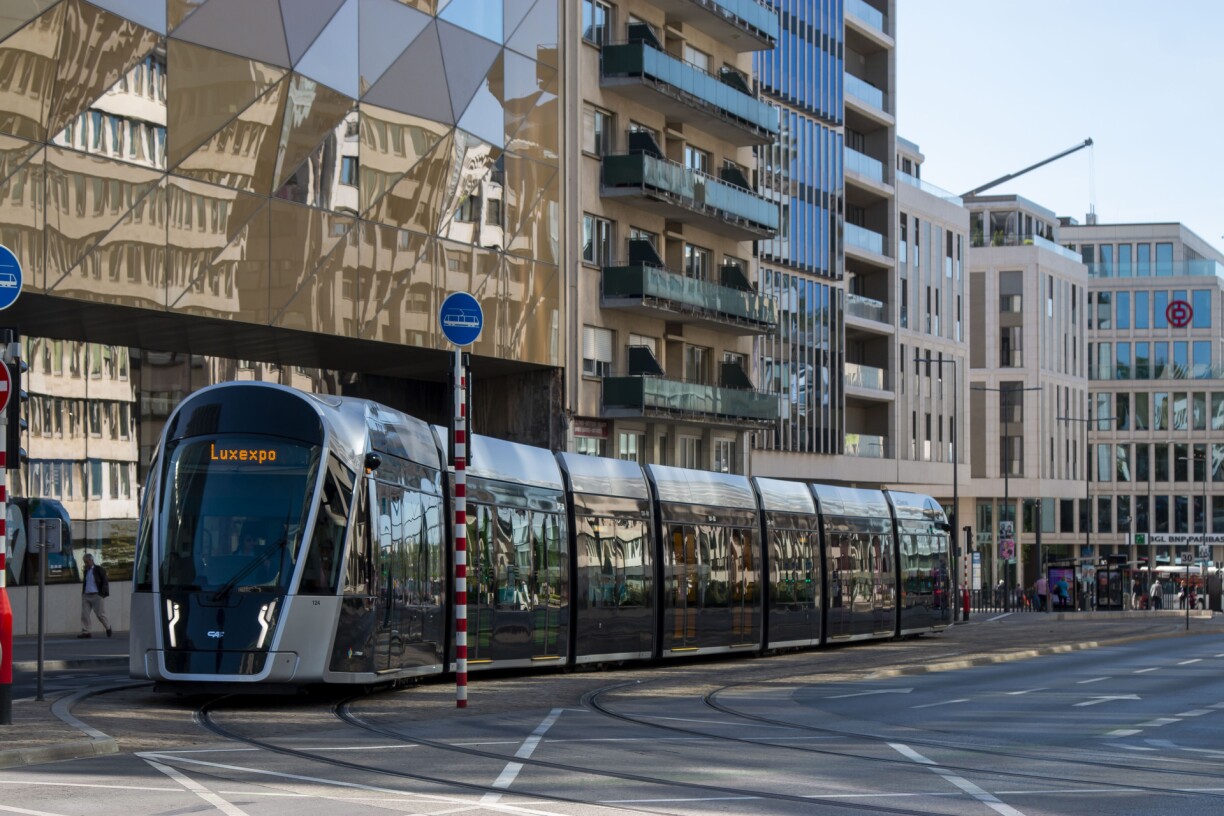
“Less transit traffic” in residential areas is the election slogan shared by the DP, CSV, and others. The Green Party is more radical and simply commit themselves to “eliminating through-traffic in the districts and the city centre.”
The development of the tram, which the Green Party launched in 2017, remains a major challenge. The CSV wants to develop buses and trams “as a priority and on a large scale” with new links between districts “without all lines having to pass through the city centre.” The Green Party’s priority is to create a second line in Kirchberg (Laangfuer/Kuebebierg), with a direct connection to the CHL Interchange and Porte de Hollerich, as well as a second connection to Cloche d’Or via the Hollerich peripheral station and Route d’Esch. There is no longer any mention of such projects in the election programmes of the DP and LSAP.
Ensuring public security in the capital is another significant challenge. Concerns include drug trafficking in the Gare area, increasing assault rates, and organised begging, which the DP and CSV would like to see eradicated. The controversy surrounding the ban on begging has divided the political class. The LSAP and Fokus are against the ban, and for the Left Party (déi Lénk) it’s not a question of security, but of fighting poverty and inequality in the long term, as MP Nathalie Oberweis explained in an interview with RTL. The controversy is not over yet, as Lydie Polfer and Serge Wilmes have rebelled against the decision by Minister for Home Affairs Taina Bofferding (LSAP) to overturn their ban on begging, which has been in force in several parts of the city since March.
While the idea of an increased police presence on the ground met with a degree of consensus, the CSV’s proposal to create a municipal police force within the national police force, subject to the mayor’s authority, did not please everyone. Lydie Polfer was quick to support it, as was the Alternative Democratic Reform Party (adr). The LSAP is opposed to the creation of a municipal police force and proposes instead to revitalise neighbourhoods and “ensure that citizens reclaim public spaces.” For the LSAP, safety in the city requires the presence of police officers, but also of municipal agents and streetworkers. The Green Party proposes to develop a local security plan, as in Esch-sur-Alzette.
These elections on 11 June in the capital are of particular importance for the DP of Prime Minister Xavier Bettel, himself a former mayor of Luxembourg City just before joining the Ministry of State in 2013. The party not only views the elections as a test of its popularity before the upcoming legislative elections, but also has to defend a stronghold that it has had for more than fifty years and which has seen a gradual decline in the number of seats won in recent elections. The question is therefore whether the duo formed by Lydie Polfer and Patrick Goldschmidt is still “close enough to the people”.
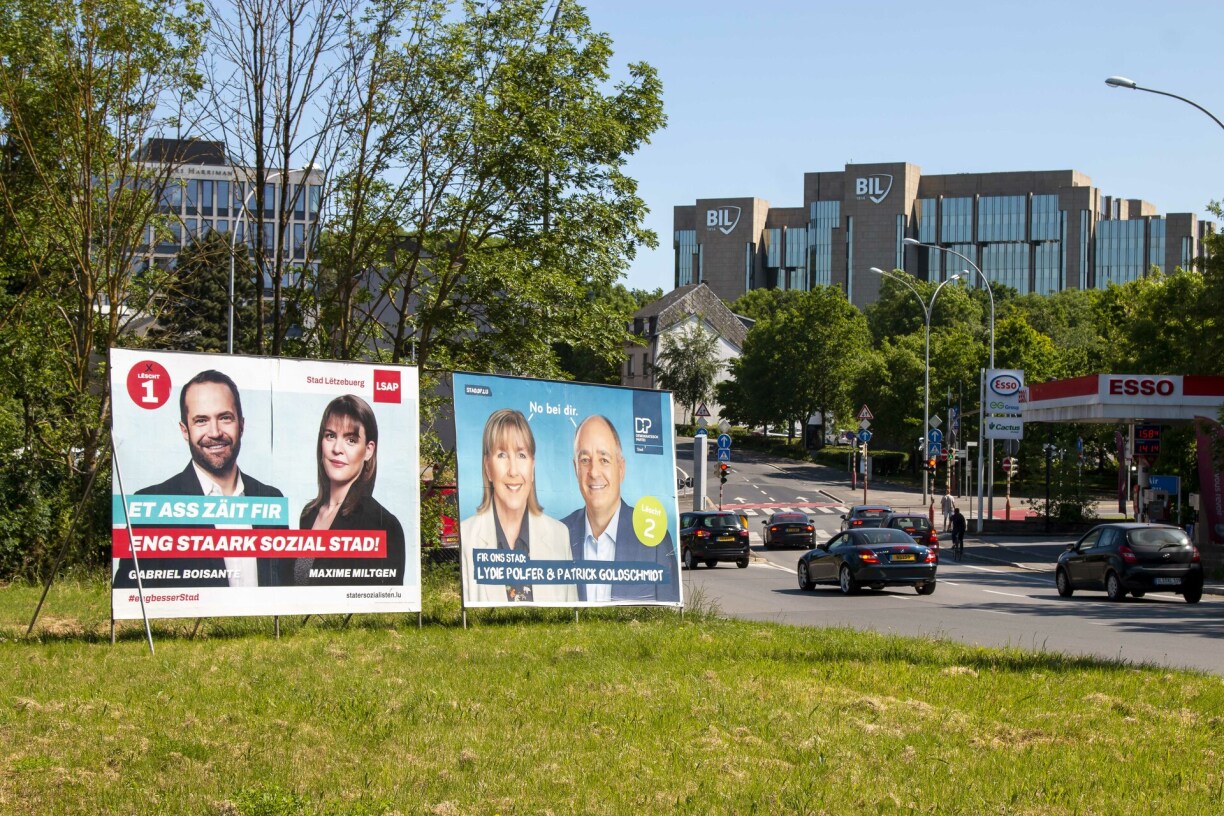
While he can count on the CSV’s “heavyweights” on the local council (Maurice Bauer, Laurent Mosar, Paul Galles) and the party’s “rising star”, Elisabeth Margue (vice-president of the CSV), Serge Wilmes hopes to make a difference by running as the sole lead candidate, backed by his previous strong performance in the 2017 elections that saw him garnering more than 9,100 votes, compared with more than 12,600 for the much more experienced Lydie Polfer. He announced very early on that he wants to become mayor this time.
The Green Party, previously in office alongside the Democratic Party, is seeking to regain influence and revitalise the city. The ambition of co-lead candidates François Benoy and Claudie Reyland, despite the absence of Sam Tanson’s 8,850 votes, is to reclaim the municipal executive board, even as part of a three-way coalition.
The LSAP led by local councillor Gabriel Boisante and Maxime Miltgen could, on paper, be the missing partner in such a coalition. Their main handicap will be the missing votes of the charismatic Marc Angel (6,419 votes), who was elected Vice-President of the European Parliament earlier this year.
The Left Party, which “knows how to do things differently” and already has two seats on the council, Pascal Clement and Marie-Marthe Muller’s Pirate Party, which aims for its first seat in Luxembourg City, Tom Weidig’s ADR, which lost its seat in November, and the young Fokus party, which is standing for the first time, could all potentially influence the outcome of the elections.
Related:
14 new offices: Luxembourg City braces for logistical challenge of municipal electionhttps://infos.rtl.lu/actu/luxembourg/a/2065662.htmlMunicipal Elections: LSAP focuses on affordable housing as top priority in Luxembourg City
https://infos.rtl.lu/actu/luxembourg/a/2069132.html